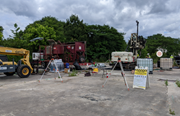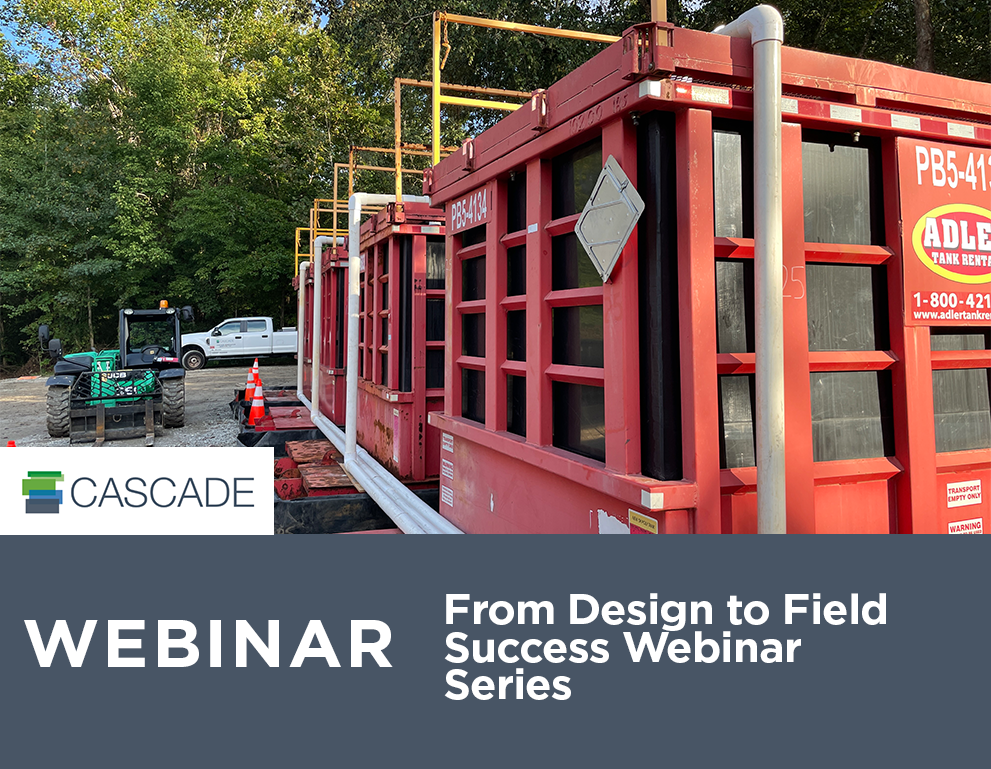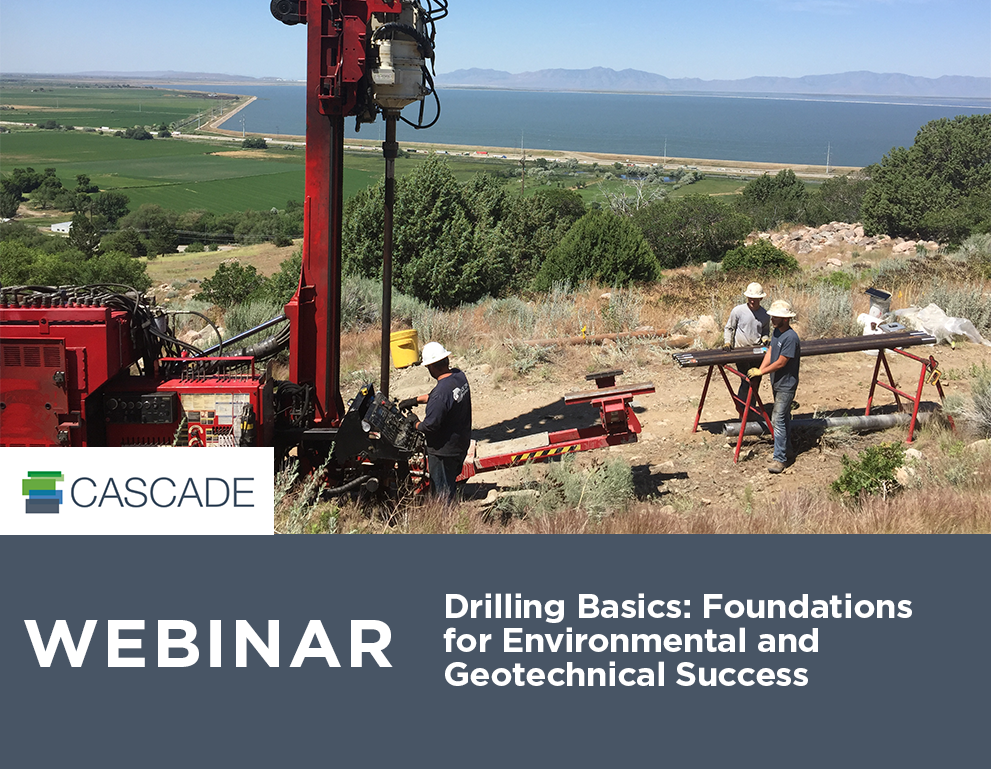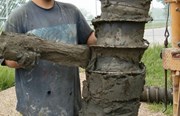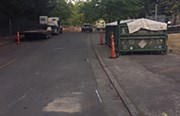4 Drillers Share Advice They Got As (and Would Give To) Driller Assistants
A career in drilling is rewarding—but it can also be extremely challenging, especially when you’re first starting out. Nearly everything has to be learned on the job, because there are no training programs or vocational schools that teach the skills needed for this kind of work.
If you’re just starting out in drilling and feeling like everything is uphill, take heart. Four Cascade drilling veterans recently shared how they got into this line of work, the advice they received along the way, and their own tips for new drilling assistants or those who are interested in drilling as a career.
Getting Started in Drilling
Tory Salazar, Field Services Supervisor, started out as a driller’s helper. Tory said, “I had a great teacher who spent the time training me in person, working hands-on and not just telling me what to do.” This was a common experience among all the drillers; they were fortunate to work with drillers who showed them the ropes and invested time in teaching.
James Goble, Field Services Supervisor, was hired as a helper for Bruce Niermeyer, founder of Cascade Drilling. James’s father was a driller, and he had advice for his son: “My dad’s advice was to keep my mouth shut – meaning stay humble and learn – and to work hard.”
Driller Jeremy Triepke’s dad also worked for Cascade; he started in the coring division, became a mechanic working on drill rigs, and retired after 30 years of service in 2020. Jeremy worked at a local hardware store through high school and college, where he earned a degree in small engines. His dad encouraged him to apply to Cascade. Jeremy has now been with Cascade for 16 years, starting as a driller in his second year.
Jeff Jehn spent 15 years as a driller’s helper at Cascade before deciding he wanted a new challenge and becoming a driller in 2021. He started out at Cascade doing auger work and coring with auger rigs. In the late 2010s, while still a helper, he was put in charge of a recurring project replacing pumps and motors on wells.
Whether someone enters the industry from outside, knows someone who’s familiar with it, or wants to move into this career from within the company, there are many paths to becoming a driller.
Learning on the Job
It takes time to learn something new and to get good at it. Tory emphasized that new driller assistants need to focus on mastering the job and learn how to do it properly before trying to move onto the next task or opportunity. He said, “You might be frustrated not knowing everything at once, but you have to take your time.”
Jeff agreed, pointing out that in drilling, learning on the job is a combination of watching more experienced drillers, hands-on work, and a willingness to ask questions. “I've seen many drillers do different things. You pick up a lot from watching,” he said. “But until you actually do it yourself, you don't understand the reasons why they're doing it.” He added, “If something goes wrong, as long as you learn from it, it's not a mistake. There's always a solution. Don't be afraid to ask the senior drillers for advice or help.”
Jeremy felt the same way. He said, “I had the privilege of working with several experienced drillers when I started as a helper, and even when I started drilling, I had help from drillers across the country. You figure it out, you borrow from them, and you figure out a way to make to work.”
James said, “I still didn’t know everything when I became a driller. When I was a new driller, if something went wrong, I would panic, which made it worse. I had to stop and think about how to solve it.”
Jeff added that when he started drilling, he would have to remind myself that it's not a competition between him and another driller to see who can get more done. He explained, “If there were two crews, chances are they had more experience than I did. They had a system and they could just go faster. As long as I was being safe, it didn’t matter who got more done.”
Jeremy made the point that this is a physically demanding job. He said, “In my previous job, I did heavy lifting. But that first couple of months as a helper, my body ached a lot. You just have to get used to it. If you’re serious about wanting a career, give it about three months, and it gets easier.”
Advice for a Drilling Career
Drilling can be a tough career—so what advice do these experienced professionals have for those who want to make it work?
Tory's takeaway for new driller assistants is to push through every day and learn what you can from whoever is willing to teach you. Before long, he says, you’ll look back and see a huge amount of progress and learning. Tory tells assistants, “Stick with it and you can make a career for yourself. I don’t think I’ll ever do anything else.”
James tells people new to the field to recognize that just because it’s hard going at first doesn’t mean they don’t have a promising career. He shared a story about a young man he met at a guitar store and encouraged to apply to Cascade. James told him that although he was an expert at the guitar store, he wouldn’t be an expert in this job at first, so he would have to adjust to that.
This young man has been a helper for a year and a half, and James says, “He’s given me hope for the future. It’s hard to find people that want to move up, be an operator, run their own crew. This guy has that potential.”
Jeremy’s advice for new driller assistants is to simply ask for help when you need it. He said, “The people I worked with on that first job in Florida kept an eye on me.” Now, he does the same for new helpers and drillers. He advised, “Be willing to ask for help. Nobody will tell you no; we’re on the same team.”
Why They Love Working in Drilling
Tory loves the brotherhood and the camaraderie of working with a team. He called his team the Diamond Crew and created a logo which he used on stickers and gave to clients. Tory said, “One of the key things is the reward from doing a very difficult project. Over time, you can build a strong reputation.” Based in California, Tory takes pride in the fact that clients all over the state request him and will wait for him to free up so he can join their project.
James said, “I love that you’re outside, you’re always somewhere different. You’re not riding a desk.” He adds that, “Over time, you learn a lot and build character.”
“I’m happy to be a driller now because I like taking responsibility and doing the job right,” said Jeff.
Jeremy loves the travel opportunities that can come with the job. He said, “I’ve traveled all over the United States and seen a lot of things I wouldn’t have been able to see working a 9 to 5 job.” He added, “I have a lot of fun when I go to work. What we do, the guys I work with, the supervisors, it’s all great.”
The biggest takeaway? Every driller you meet has been a driller assistant and understands the challenges you may be going through—and they almost always want to help.
If you need advice or support, go ahead and ask.
Not yet a driller assistant, but interested in a career in drilling? Contact Director of Talent Acquisition Jessica Alexander if you have questions or want to learn about next steps.




